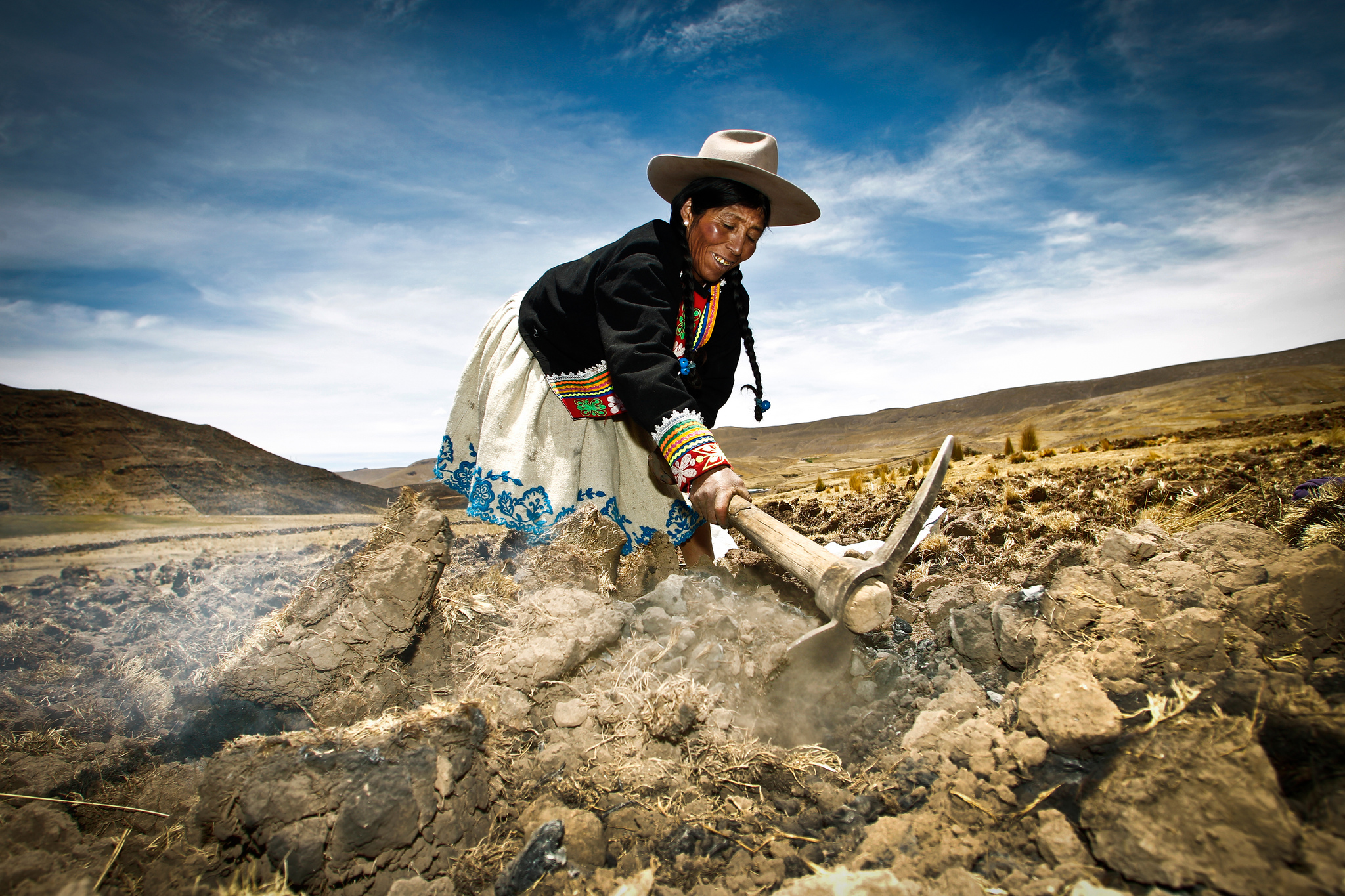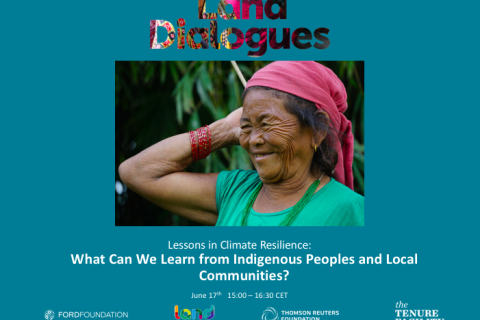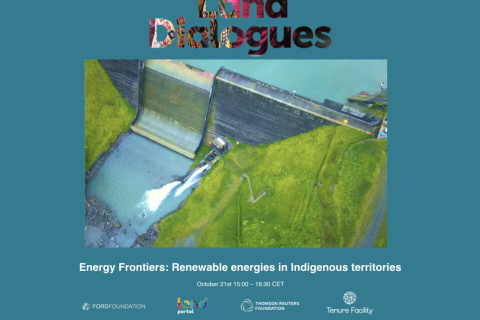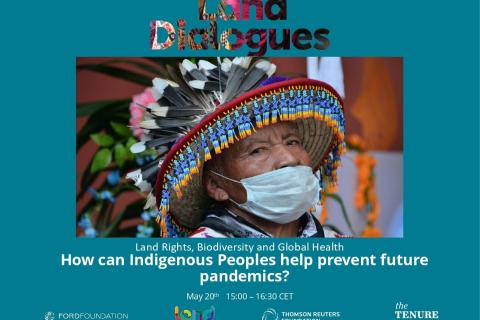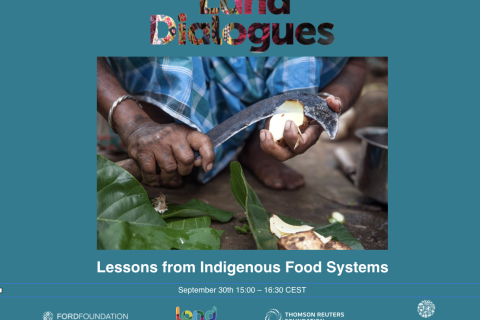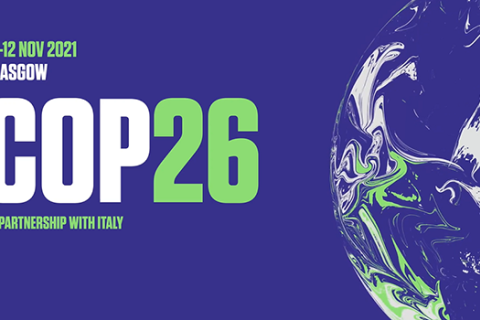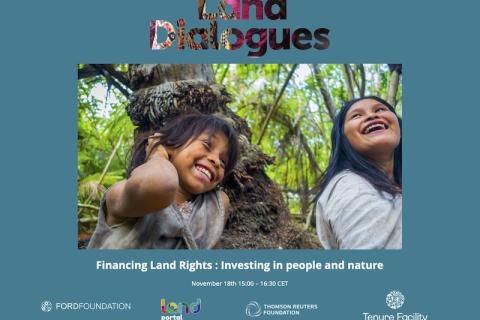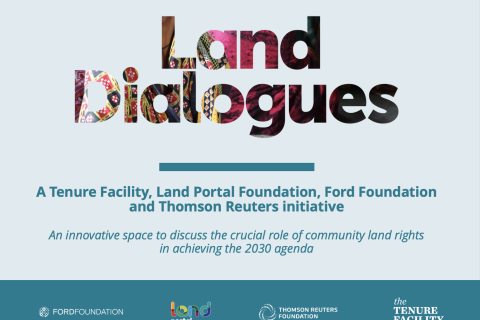Indigenous Peoples look after their land, protect the environment and food sources, and can be a bulwark against global disease by ensuring biodiversity and proper management of forests.
But they remain under sometimes violent threat, are often treated as after-thoughts in international policy planning, and generally see their rights taking second-place to global demands, including environmental protection.
These were the main takeaways from the inaugural series of Land Dialogues hosted in 2021 by the Tenure Facility, Land Portal and the Ford and Thomson Reuters foundation.
Hugely successful, the webinar series will continue in 2022. As before, the Dialogues will feature leaders of Indigenous Peoples, advocates for land rights, academic researchers, and government officials.
The overall message from 2021’s series was that Indigenous and traditional communities have an unalienable right to manage their own lands and that -- although by no means a condition -- the rest of the world can benefit from that.
Consider, for example, disease. With COVID-19 still raging across the world, a Land Dialogues in April discussed zoonosis, the transference of animal-based diseases into human infections such as Ebola, Zika, Lyme Disease, E. Coli and, indeed, COVID.
“Most of the biodiversity of the world exists in … landscape that is traditionally owned by Indigenous People and local communities,” Carlos Zambrana-Torrelio, associate vice president of EcoHealth Alliance, told the webinar. “(A) global network of well-managed forests can really help (protect) human health.”
In a similar vein, a Land Dialogues webinar in July focused on how food systems on the lands of indigenous societies are generally based on traditional knowledge of farming and of local flora, encouraging sustainability and providing adequate food security for the people who manage it.
Sara Oliveros Lopez, a member of the Indigenous Nahua group and co-founder of the Interdisciplinary Centre for Research and Alternative Development in Mexico, described Indigenous food systems as “holistic and interconnected”.
“It’s about culture. It’s about landscape. It’s about ancestral values and knowledge. And all of these are interdependent,” she said.
And, of course, Indigenous peoples and local communities are on the front lines of resisting the main industrial drivers of global biodiversity loss and climate breakdown.
“We live in the lungs of the world,” Oswando Nenquimo, co-founder of the Alianza Ceibo, a group defending Indigenous People’s territories in the western Amazon, said in June.
“We have learnt resistance against the state, the oil industry and others. We know how to govern our territory, our terrain,” he said.
IT’S ABOUT RIGHTS
But while the world clearly benefits from the environmental protections offered by Indigenous Peoples with tenure -- a landmark report* found that deforestation and other forms of environmental degradation are at the very least tempered and sometimes halted altogether in such cases -- this should not obscure the main issue of human rights and survival.
“We don’t have rights as human beings because we do good recycling,” Fiore Longo, research and advocacy officer at Survival International, told the Land Dialogues in September.
“Indigenous people have rights, independently of how much they contribute to climate change or not. And they have rights to their land independently of how much they protect biodiversity.”
Instances of this were cited in October, when the Land Dialogues series turned its attention a new threat to Indigenous Peoples, this time from the outside imposition of large green projects, such as dams and wind farms.
Renewable energy projects, while often deemed necessary in the pursuit of a global limit to CO2 emissions, have become the latest threat pressure point in the struggle of many Indigenous Peoples to take and keep control of their lands.
“Land grabbing is now becoming a common problem, a common challenge, because of the imposition of renewable energy in Indigenous territories,” said Joan Carling, global director of Indigenous Peoples Rights International.
“We cannot effectively address climate change without the protection of the land tenure of Indigenous Peoples,” she said.
The final Lands Dialogues of 2021, meanwhile, looked at the qualified success for Indigenous Peoples at the COP 26 climate change summit in Glasgow in November.
A $12 billion “Global Forest Finance Pledge” signed by 11 rich countries and the European Union, stipulated that part of the money would be used for supporting “forest and land governance and clarifying land tenure and forest rights for Indigenous Peoples and local communities”.
More specifically, a group of these countries joined with foundations to pledge an initial $1.7 billion of financing for tenure, through to 2025.
While certainly a watershed, the funding immediately raised the issue of how it would be spent and what role Indigenous Peoples themselves would take in how it is used.
“The tendency has been to fund big NGOs, big conservation organisations registered in the U.S. and Europe,” said Kevin Currey, programme officer with the Ford Foundation’s Natural Resources and Climate Change team, adding that the dangers of mismanagement by Indigenous Peoples were over-stated.
“I think that actually exposes a different kind of risk, which is wasting money through not delivering results,” he said of the traditional form of distribution.
The key takeaway was that the land to be protected belongs to Indigenous Peoples and is managed by them. So, they cannot be side-lined from the process.
“We are strategic partners to combat climate change,” Tuntiak Katan, a leader of the Ecuadorean Shuar people, said bluntly. “We’re not beneficiaries.”
Onwards to 2022.
*Forest Governance by Indigenous and Tribal Peoples. U.N. Food and Agriculture Organization (FAO) and the Fund for the Development of the Indigenous Peoples of Latin America and the Caribbean (FILAC).

